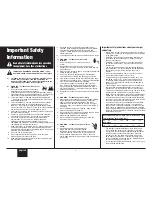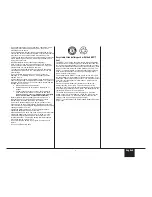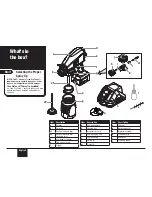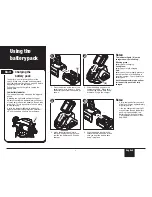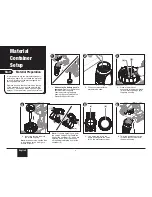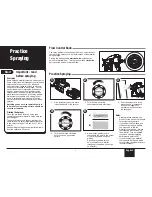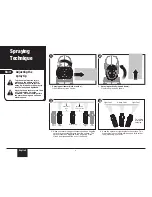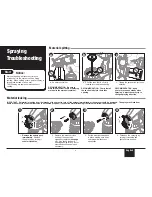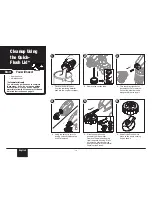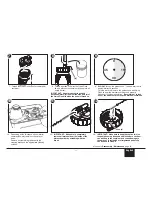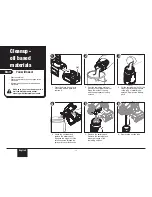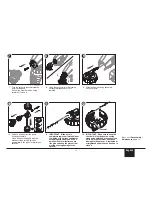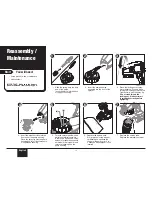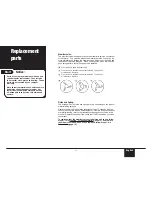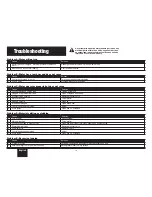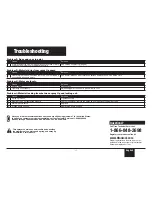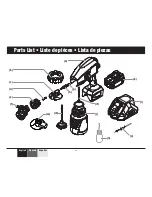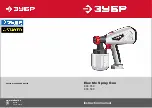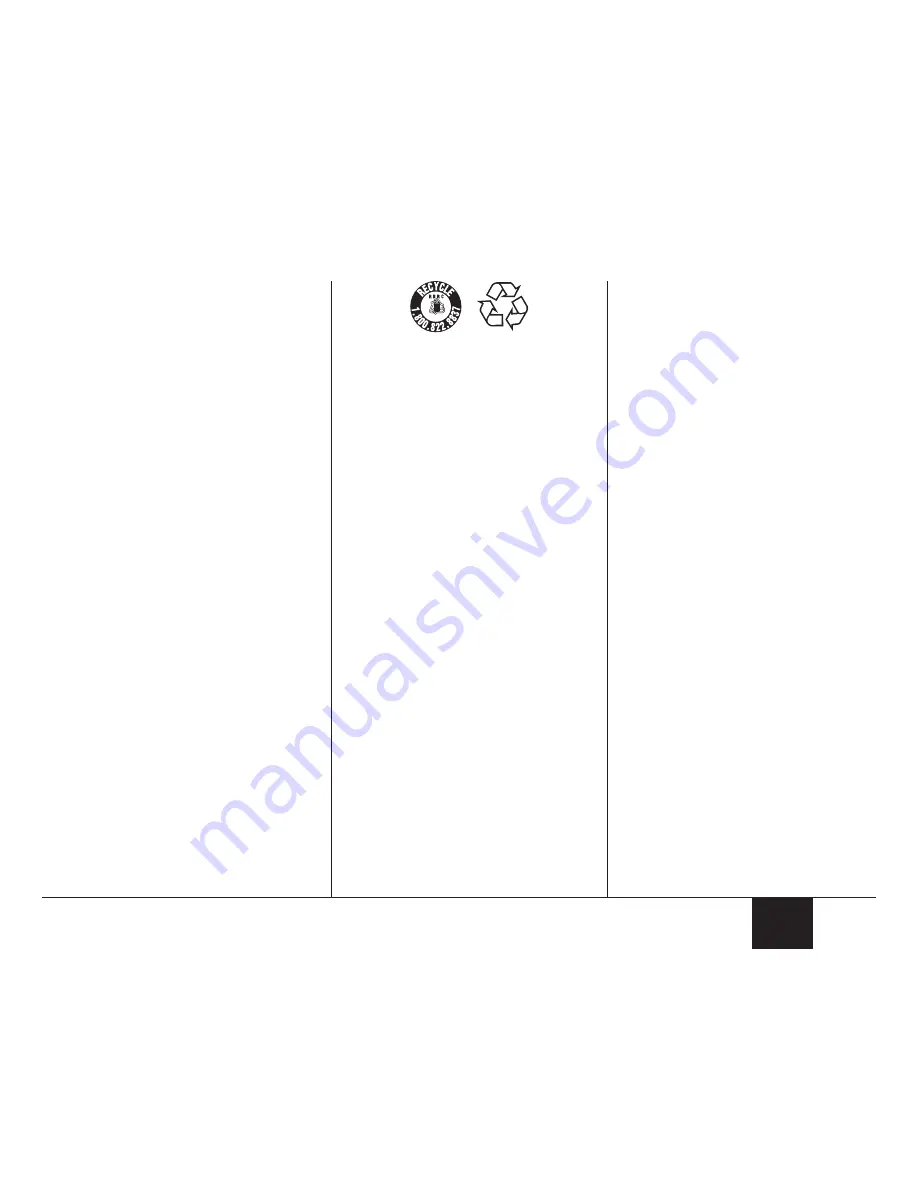
English
3
• Do not operate charger if it has received a sharp blow, been
dropped, or otherwise damaged in any way; take it to an
authorized service center.
• Do not disassemble charger; take it to an authorized service
center when service or repair is required. Incorrect reassembly
may result in a risk of electric shock, electrocution or fire.
• To reduce the risk of electric shock, unplug charger from outlet
before attempting any cleaning. Removing the battery pack
will not reduce this risk.
• NEVER attempt to connect two chargers together.
• DO NOT store or use the tool and battery pack in locations
where the temperature may reach or exceed 105°F (such as
outside sheds or metal buildings in summer).
• The charger is designed to operate on standard household
electrical power (120 volts). Do not attempt to use it on any
other voltage.
• Do not incinerate the battery pack even if it is severely
damaged or is completely worn out. The battery pack can
explode in a fire.
• A small leakage of liquid from the battery pack cells may occur
under extreme usage or temperature conditions. This does not
indicate a failure. However, if the outer seal is broken and this
leakage gets on your skin:
a. Wash quickly with soap and water.
b. Neutralize with a mild acid such as lemon juice or
vinegar.
c. If battery liquid gets into your eyes, flush them with
clean water for a minimum of 10 minutes and seek
immediate medical attention
(medical note: the liquid
is 25%-35% solution of potassium hydroxide).
• Never attempt to open the battery pack for any reason. If
the plastic housing of the battery pack breaks or cracks,
immediately discontinue use and do not recharge.
• Do not carry extra battery packs in aprons, pockets, or tool
boxes along with other metal objects. Battery pack could be
short circuted causing damage to the battery pack and possibly
causing severe burns or fire.
• Charge the battery packs only in Titan chargers that are
specifically designed for this exact battery.
. • When battery pack is not in use, keep it away from other metal
objects like paper clips, coins, keys, nails, screws, or other
small metal objects that can make a connection from one
terminal to another. Shorting the battery terminals together
may cause sparks, burns or a fire.
• Do not immerse the battery in any liquid, as it may vent or
rupture.
• Do not crush the battery pack.
Li - ion
Recyclable Li-ion battery pack with the RBRC™
Seal
The RBRC™ Seal on the easily removable lithium-ion battery
provided with your cordless spray gun indicates that Titan Tool
Inc. is voluntarily participating in an industry program to collect
and recycle these batteries at the end of their useful lives, when
taken out of service within the United States or Canada. The
RBRC™ program provides a convenient alternative to placing
used lithium-ion batteries into the trash or municipal waste,
which is illegal in some areas.
Titan’s payments to RBRC™ make it easy for you to drop off
the spent battery at local retailers of lithium-ion batteries, or at
authorized Titan product service centers. You may also contact
your local recycling center for information on where to return
the spent battery.
Please call 1-800-8-Battery for information on lithium-ion
battery recycling in your area. Titan’s involvement in this
program is part of its commitment to protecting our environment
and conserving natural resources. Note: The batteries are not
replaceable. Removal is for recyling only.
To remove the battery pack from the spray gun, press the
button on the rear of the battery to unlock and slide it from the
bottom of the handle. To remove the battery pack from the
charger, slide it up and away from the charger.
RBRC™ is a trademark of the Rechargeable Battery Recycling
Corporation.


